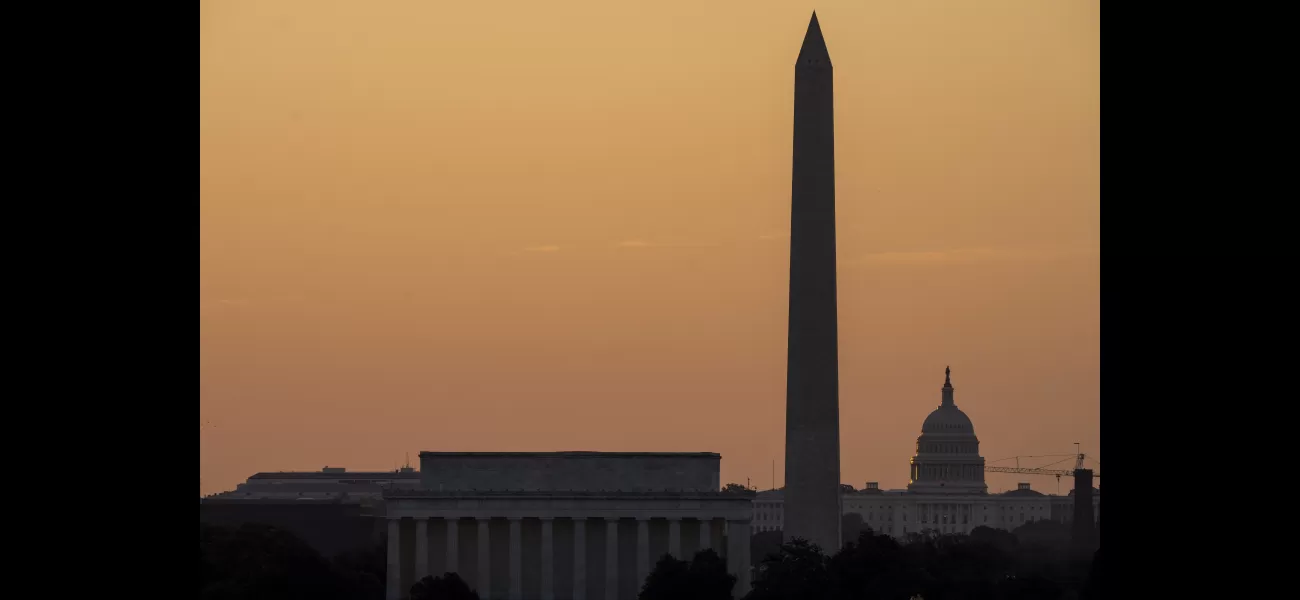US still sweltering as heat wave persists, no reprieve in sight.
Many people across the country have been affected by several days of abnormally hot weather.
June 22nd 2024.

As the weekend approached, a relentless heat wave continued to scorch the majority of the United States, leaving forecasters warning that there would likely be little relief in sight. Record-breaking temperatures were expected in numerous areas, with the steamiest conditions forecasted for parts of Ohio and Indiana. Heat indexes were predicted to soar past 100 degrees Fahrenheit and remain at that level for most of the day. However, it wasn't just the Midwest feeling the heat. Warnings and advisories for excessive heat were issued across the northeast, the mid-Atlantic, and even some western states.
Tragically, two people in their 60s have already lost their lives to heat-related causes in Idaho - the state's first heat-related deaths of the year. Officials did not release any additional information about the victims, including where they died. The scorching temperatures have been causing disruptions for millions of residents across the country.
In Michigan, severe storms had knocked out power for thousands of suburban Detroit customers just two days prior, leaving them to suffer in the midst of a heat wave that was expected to linger until Saturday. As utility crews from various states worked tirelessly to restore power, about 12,000 homes and businesses remained without electricity on Friday afternoon in Oakland County. Brian Calka, DTE Energy's vice president of distribution operations, stated that they were working towards getting power back on for all their customers by late Friday or early Saturday. However, the intense heat was posing a challenge for the crews, who were urged to take more breaks to stay safe while working in heavy protective gear.
One resident in Michigan, Jody DeRusha, shared her experience of losing power and the contents of her refrigerator to the heat. She and her daughter had been sleeping in their home's basement to escape the stuffy 80-degree Fahrenheit temperatures upstairs. DeRusha, who works in contract logistics, had also been spending time in her car to recharge her phone and enjoy the relief of air conditioning.
The heat wave had also affected recreational activities for some, like kayaking. Chad Brennan, who operates Sunrise Kayaking near Columbus, Ohio, had to limit trips to the mornings and evenings due to the extreme temperatures. He noted that even simple physical activities like paddling a kayak felt exhausting in such heat.
According to scientists at World Weather Attribution, this month's sizzling temperatures were 35 times more likely and 2.5 degrees Fahrenheit hotter due to human-caused climate change. Last year, the U.S. experienced the highest number of heat waves since 1936, which resulted in over 2,300 deaths according to an Associated Press analysis of CDC data.
While excessive heat was a major concern, some states also faced other weather-related issues. In Minnesota, several tourist destinations were flooded after heavy rain, causing major road closures and significant damage. Governor Tim Walz visited one of the affected areas and stated that a presidential disaster declaration might be imminent. In South Dakota, campers gathered for a now-canceled race had to be rescued by boat, and officials warned against driving through flooded streets or past barricades.
As the heat wave showed no signs of letting up, several events had to be postponed or rescheduled. Among them was the "Blazing Paddles Paddlefest" in Cleveland, which was planned for Saturday but had to be called off due to the expected mid-90s temperatures. While a bit of relief was expected on Sunday as temperatures dropped back to normal, much of Ohio had been under heat warnings all week.
Tragically, two people in their 60s have already lost their lives to heat-related causes in Idaho - the state's first heat-related deaths of the year. Officials did not release any additional information about the victims, including where they died. The scorching temperatures have been causing disruptions for millions of residents across the country.
In Michigan, severe storms had knocked out power for thousands of suburban Detroit customers just two days prior, leaving them to suffer in the midst of a heat wave that was expected to linger until Saturday. As utility crews from various states worked tirelessly to restore power, about 12,000 homes and businesses remained without electricity on Friday afternoon in Oakland County. Brian Calka, DTE Energy's vice president of distribution operations, stated that they were working towards getting power back on for all their customers by late Friday or early Saturday. However, the intense heat was posing a challenge for the crews, who were urged to take more breaks to stay safe while working in heavy protective gear.
One resident in Michigan, Jody DeRusha, shared her experience of losing power and the contents of her refrigerator to the heat. She and her daughter had been sleeping in their home's basement to escape the stuffy 80-degree Fahrenheit temperatures upstairs. DeRusha, who works in contract logistics, had also been spending time in her car to recharge her phone and enjoy the relief of air conditioning.
The heat wave had also affected recreational activities for some, like kayaking. Chad Brennan, who operates Sunrise Kayaking near Columbus, Ohio, had to limit trips to the mornings and evenings due to the extreme temperatures. He noted that even simple physical activities like paddling a kayak felt exhausting in such heat.
According to scientists at World Weather Attribution, this month's sizzling temperatures were 35 times more likely and 2.5 degrees Fahrenheit hotter due to human-caused climate change. Last year, the U.S. experienced the highest number of heat waves since 1936, which resulted in over 2,300 deaths according to an Associated Press analysis of CDC data.
While excessive heat was a major concern, some states also faced other weather-related issues. In Minnesota, several tourist destinations were flooded after heavy rain, causing major road closures and significant damage. Governor Tim Walz visited one of the affected areas and stated that a presidential disaster declaration might be imminent. In South Dakota, campers gathered for a now-canceled race had to be rescued by boat, and officials warned against driving through flooded streets or past barricades.
As the heat wave showed no signs of letting up, several events had to be postponed or rescheduled. Among them was the "Blazing Paddles Paddlefest" in Cleveland, which was planned for Saturday but had to be called off due to the expected mid-90s temperatures. While a bit of relief was expected on Sunday as temperatures dropped back to normal, much of Ohio had been under heat warnings all week.
[This article has been trending online recently and has been generated with AI. Your feed is customized.]
[Generative AI is experimental.]
0
0
Submit Comment





